Newspaper journalists on TV: the best and the worst
How realistic is TV's depiction of newspaper journalists? Er... Hannah takes a tour through the highs and lows.
This article comes from Den of Geek UK.
Being a journalist and enjoying television aren’t mutually exclusive, but they don’t always make the easiest of bedfellows. Having a pretty decent understanding of how stuff actually works can ruin any number of crime dramas for you (and anyone you’re watching it with, I suppose) as you shout “why has there not been a post mortem?” and “where’s the frigging family liaison officer?” at the screen.
But there’s nothing quite as horrifying/snort-inducing as seeing your own industry depicted in drama. I could probably write a book on this, but in the meanwhile, here’s a look at some of the best and worst journalists on the box.
Tony Hills, Walford Gazette (EastEnders)
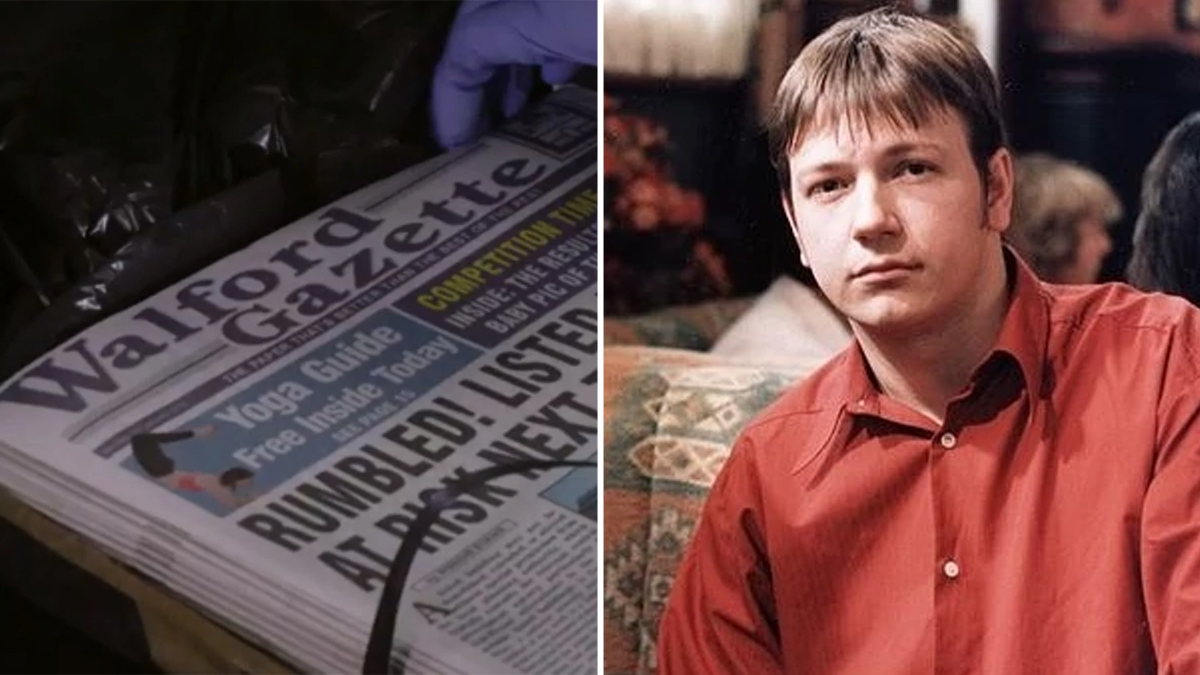
There’s probably nothing more insulting than the idea that pretty much anyone could do your job. Oh not wait, there is, it’s the idea that Tony could do it. You remember Tony. The guy who couldn’t even make a success of selling Es in the 90s.
Starting off as a tea-boy, Tony’s complete ineptitude and charisma vacuum saw him inexplicably promoted to reporter and he was soon out in the world with that haircut and little to no idea of the law or, indeed, what on earth he was doing. And Walford has always seemed like such a good news patch. What a waste.
Scott Templeton, Baltimore Sun (The Wire)
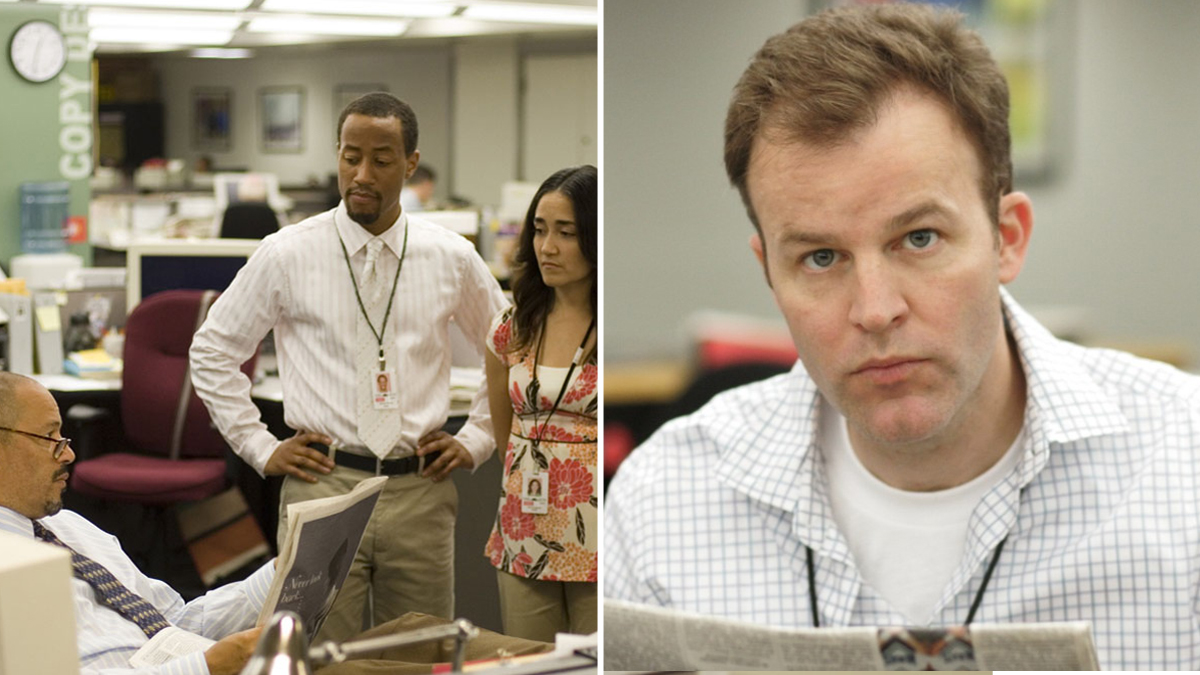
Probably the most accurate portrayal of life on a newspaper you will find on TV, even if the need to tie Templeton’s plot into the wider themes of season 5 meant he had to be a fraud. The weasel-y reporter has his eye on bigger and better papers, which is pretty common in journalism.
The making stuff up? Not so much. No, really. I’ve never encountered it or met any journalist who has encountered it.
Still, the rest of this fictional version of life on the Sun is so on the money, I’m going to let it go. I’ve even been given – and delivered – that exact lesson in “evacuation”.
And if you’re thinking that Scott doesn’t get his punished for his crimes against the truth, you’re wrong. He will never have a boss as good as Gus again. Ever.
Olly Stevens, Broadchurch Echo (Broadchurch)

You know what mystery never got solved in Broadchurch? How does a town of that size sustain a local newspaper? I grew up in a similarly-populated town that lost its newspaper before I even became a journalist. And that’s more than 20 years ago. Even the city next door, with a population of quarter of a million people, can only muster a free weekly. Until its series three demise, what was the Echo’s secret?
Not that the Echo ever seems to bring out an edition. The only writing we see Olly do is for another paper and when they find themselves with a murder trial to cover, both of the paper’s two employees attend but neither of them takes a notebook. Their memories must be amazing.
AW Merrick, Deadwood Pioneer (Deadwood); A.T. Grigg, Santa Fe Daily Review (Godless)
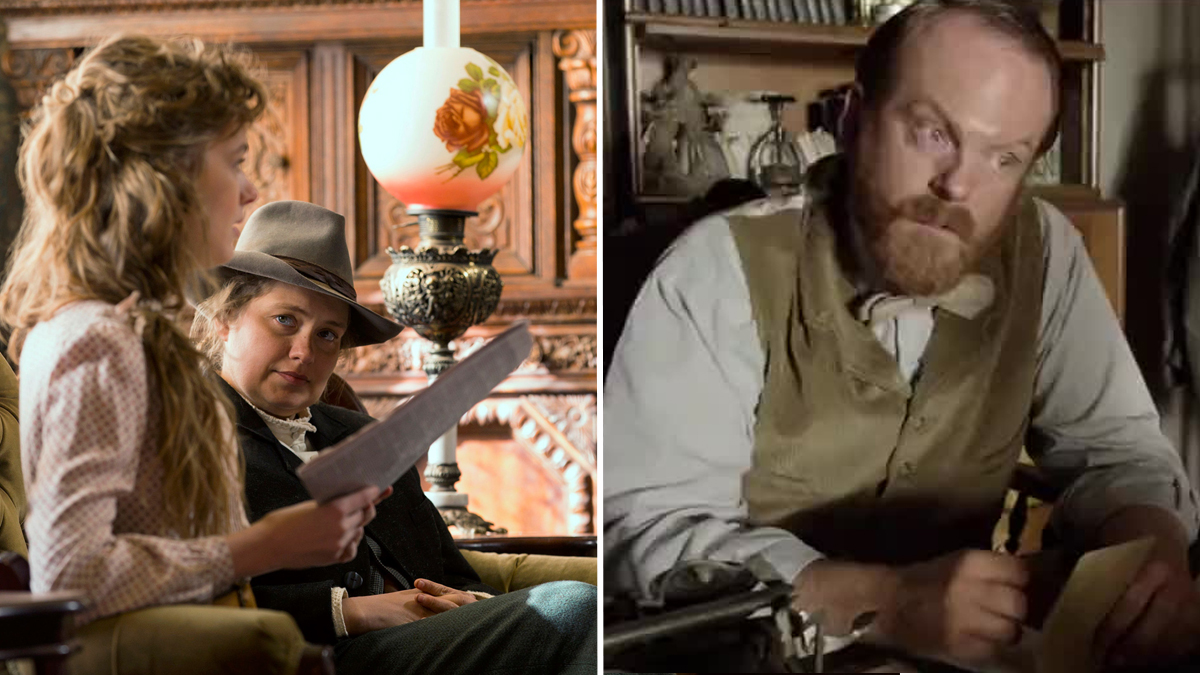
The owner, operator, sole reporter and photographer of the Deadwood Pioneer, AW Merrick is a passionate believer in truth, freedom of speech and fair play, which means people are just queueing up to try to corrupt him. So, he’s more of a representative of the media as a whole than of a single journalist. Which is what makes it okay* that it’s wildly inaccurate portrayal of Wild West newspapermen. (* Also, because Deadwood)
Yes indeed, who would’ve thought it, after years complaining that journalists are depicted as self-aggrandising, dishonest shitsacks, here I am about to say that it’s Godless‘ weepy-eyed liar Grigg who is the more accurate portrayal of Wild West journalism.
The media as an industry was still finding its feet, let alone being in a place with no law. There, provided you could handle the risk of someone taking a revenge a dump in your vowel tray, you could print what you like. And most of them did, which, in a place which thrived on machismo and tall tales, meant the legend was more often printed.
Still, they did both manage to print newspapers, which is more than most fictional editors accomplish.
Eddie Dunford, Yorkshire Post (Red Riding)
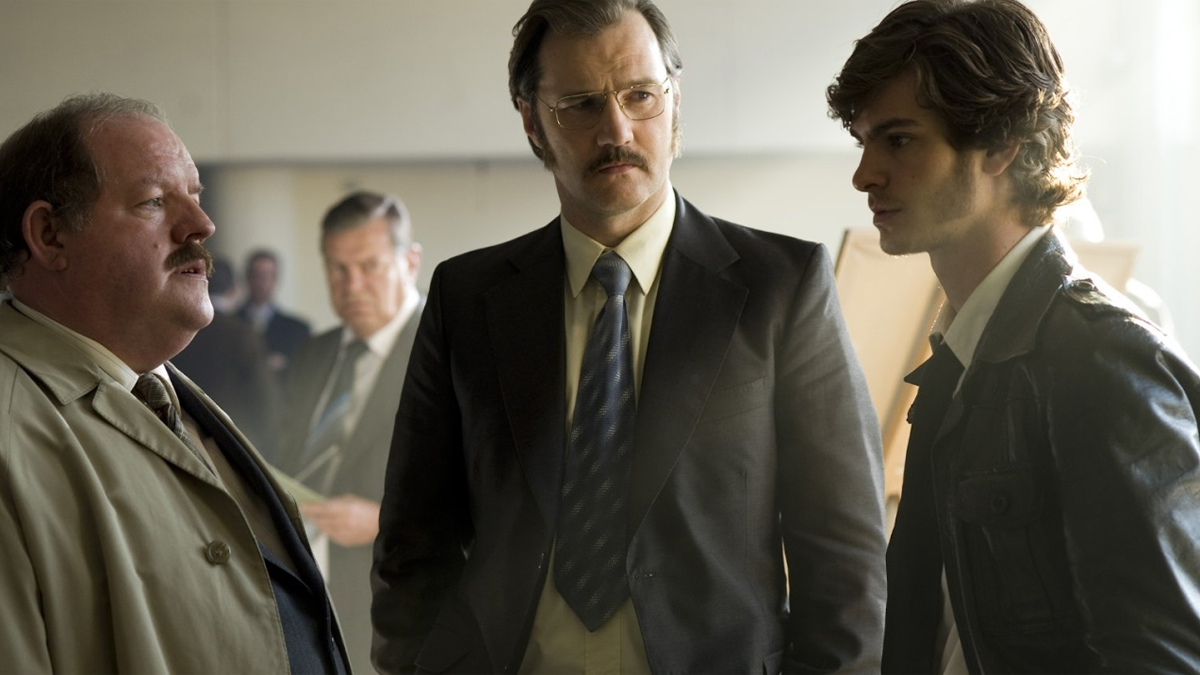
When the most realistic thing about a TV journalist is the amount of time he spends smoking in his pants in a dismal bedsit, you’re in trouble. Yep, that’s the tale of a Yorkshire Post crime reporter who stumbles into a career-making investigation of abuse, murder and corruption, while failing to file a single piece of copy.
Okay, he maybe wrote one thing in his first week. But after that, actually sitting down at his typewriter would’ve severely cut into his opportunities to roam about, sleeping with grieving women, getting into bother and forgetting to take any notes.
Luckily, no-one seemed to care. Not even the other crime reporters. Which is weird, given they were presumably consigned to a life of churning out nibs about, I don’t know, every other thing single thing under the sun that happened during Eddie’s tenure. There’s no I in TEAM, mate.
Karen Page, New York Bulletin (Daredevil)
No, but really. And I know what you’re thinking. I should cut Daredevil some slack because it’s not our universe, it’s the Marvel Universe. And I will. I will forgive it every single thing it’s ever shown a journalist saying, doing or even thinking about doing.
But Karen’s positively purple guff about how we should all have a big cuddle? I think we’ll have actual superpowers before a New York newspaper prints that on its front page. I’m not saying it absolutely definitely wouldn’t happen, of course. Just that America’s actually dealing with a malignant NY businessman with too much power right now and they haven’t resorted to wanging on about their feelings on the front pages yet. Besides, I think if they did, they’d probably ask Michelle Obama or Malala Yousafzai. Or Lin Manuel Miranda. Or anyone but Karen, really.
But the poor people of Hell’s Kitchen get a secretary in a law firm emoting about the state of the world. It’s probably easier to just throw open the windows and listen to the stoned guys downstairs. Save yourself a trip to the newsagents.
Peggy Hill, Arlen Bystander (King Of The Hill)
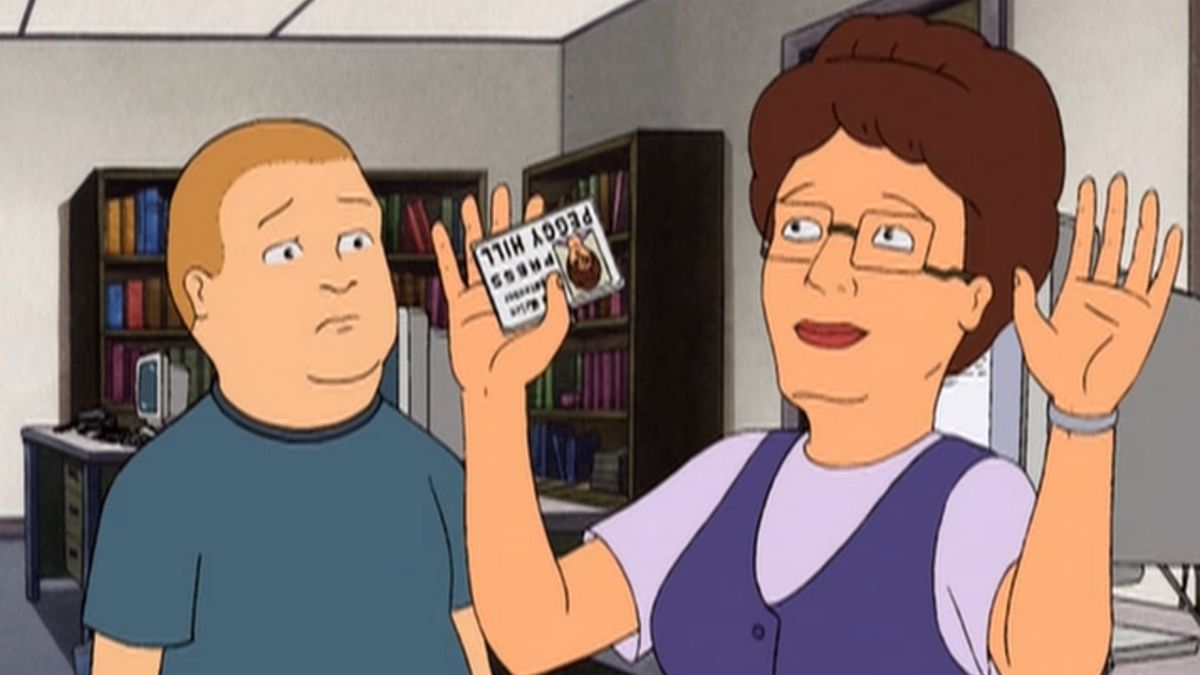
Nothing, and I mean nothing, nails the strange and sadly slowly-disappearing wonder of back-end local newspaper fodder, than the Bystander’s Musings column. First written by Doyle Harcavy, a man who hasn’t changed his byline picture for 20 years, it then falls into the enthusiastic hands of Peggy. The ensuing clash between its banality and Peggy’s fervent belief in its importance are a comedy goldmine. (As proof, I offer, “Is it my imagination or does no one talk about World War I any more?”, “Sunburn, too much of a good thing?” and “Education is the sleeping pill that dreams are made of.”)
Oh Peggy. But you know what? Writing a weekly column for any length of time is h-a-r-d, believe me. And there’s been times I’ve found myself staring out of the window thinking “whatever the next thing that pops into my head, I’m writing about it” and then really hoping it’s clean.
I never resorted to writing a column about writing a column though (unless you count this) and neither did Peggy. Because she is legend. And because she always had a better idea. Even “when it comes to tea cozies, it’s crochet or the highway”.